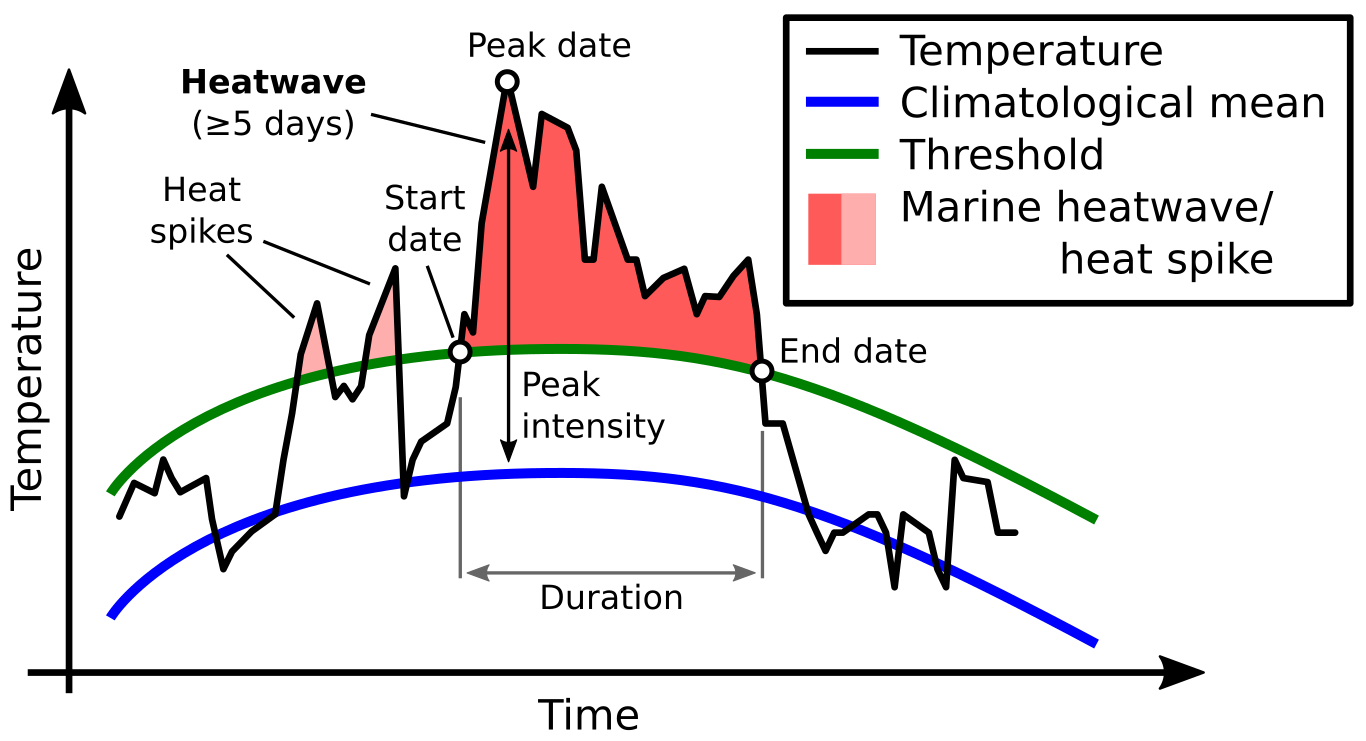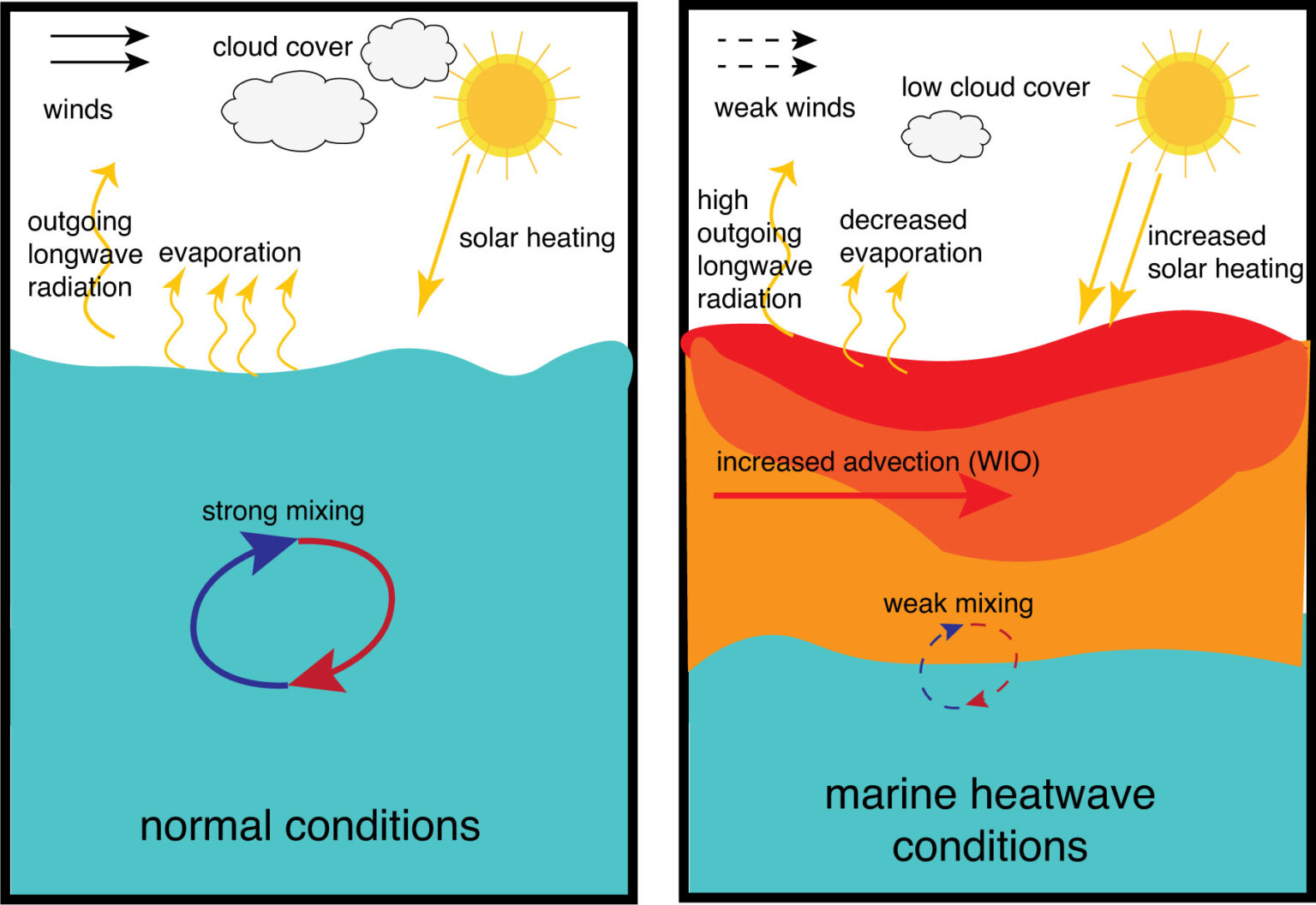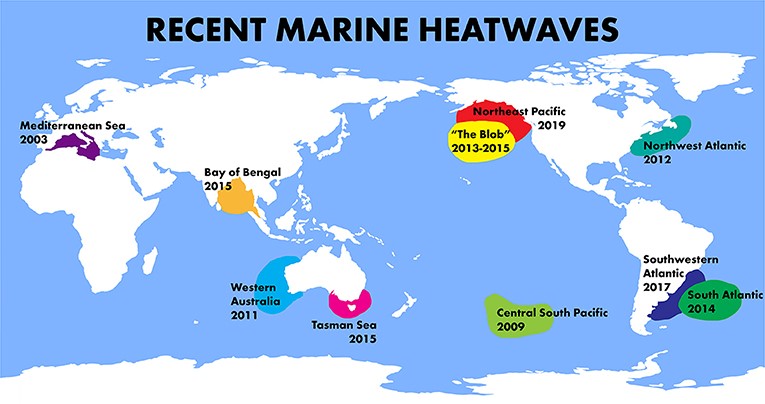900 319 0030
enquiry@shankarias.in
An increase of 3 or 4 degrees Celsius in average temperatures can be catastrophic for marine life and cause marine heat waves.

To know more about heat waves click here
Future Projections
87 % of MHWs are attributable to human-induced warming.


References